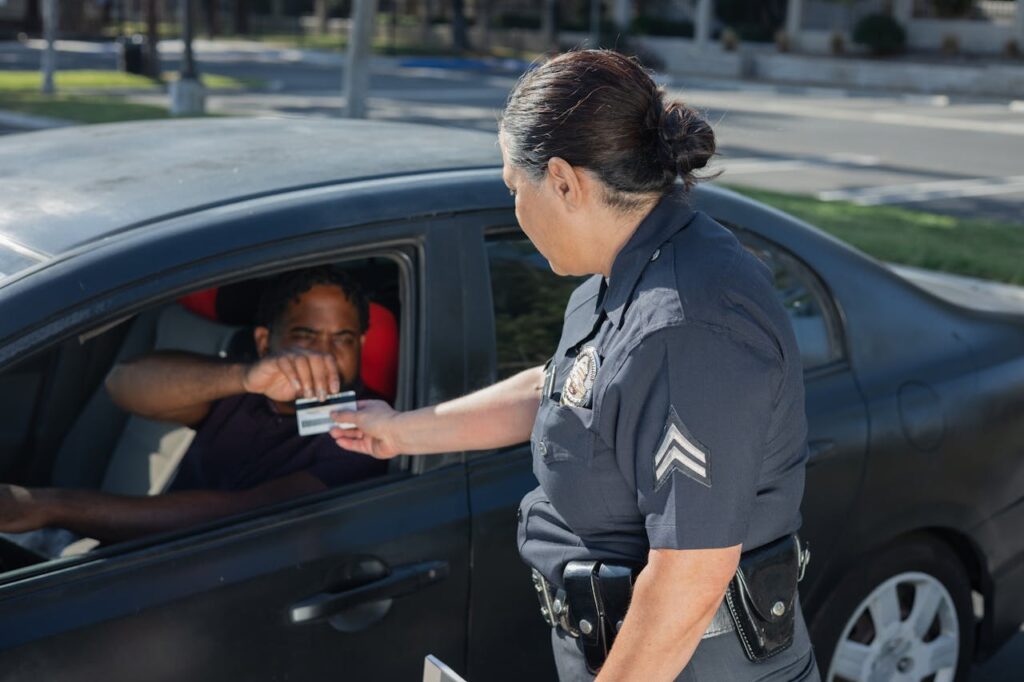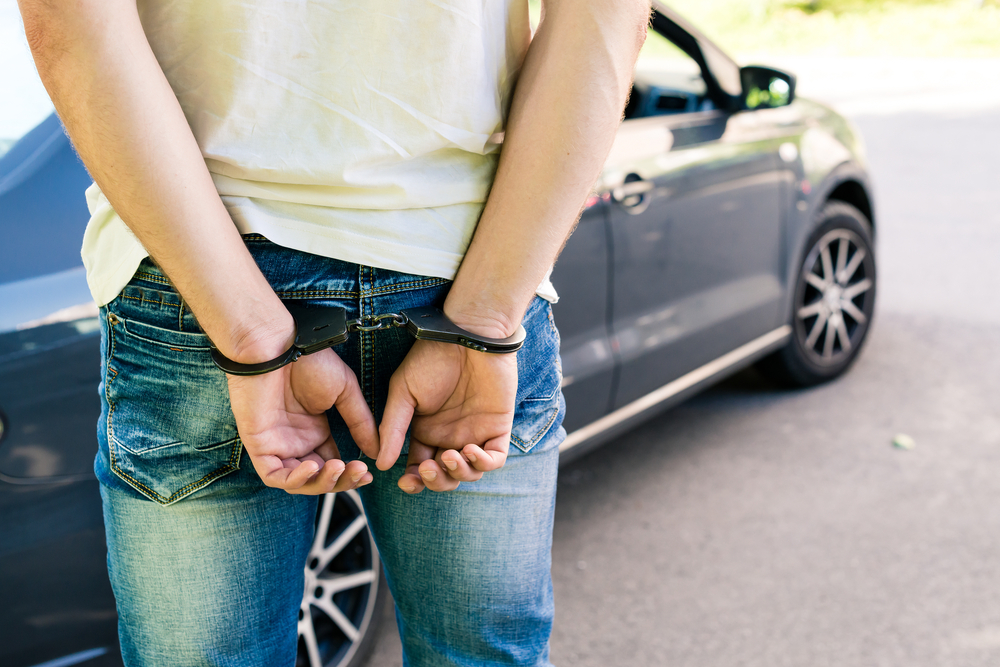Most drivers know that serious offenses like drunk driving can lead to arrest, but everyday driving behavior can also escalate into criminal charges with the possibility of jail time. These violations often surprise people because they seem minor compared with clearly dangerous acts. The Prison Policy Initiative’s 2024 analysis of U.S. jail populations found that about 4 percent of people in local jails face DUI or criminal traffic charges, representing tens of thousands of Americans. Understanding these lesser-known offenses can help drivers avoid unintended legal consequences that may land them in jail.
When Traffic Violations Become Criminal Offenses

1. Driving With a Suspended License Repeatedly
Many drivers don’t realize that continuing to drive on a suspended license transforms from a simple traffic violation into a criminal offense. Legal experts note that repeat violations of driving with a suspended license are treated more seriously by courts, with judges having the authority to impose jail sentences for such violations. While a first offense typically results in fines, multiple violations can lead to misdemeanor charges.
In most states, a third offense within a specific timeframe, usually five to seven years, becomes a felony punishable by up to one year in jail. The suspension might stem from unpaid tickets, missed court dates, or previous traffic violations, making this trap easier to fall into than drivers expect.
2. Excessive Speeding Beyond Reckless Driving Thresholds
Standard speeding tickets are civil infractions, but extreme speeding crosses into criminal territory. Most states classify speeds exceeding 25-30 mph over the limit as reckless driving, a misdemeanor offense. Virginia law is particularly strict, defining reckless driving as going 20 mph over the speed limit or exceeding 85 mph, regardless of the posted limit.
This Class 1 misdemeanor carries serious consequences. Convicted drivers face potential jail sentences of up to 12 months and fines up to $2,500, even for first-time offenders with clean driving records. New York follows similar patterns, with reckless driving convictions resulting in up to 30 days in jail for first offenses, escalating to 180 days for third convictions.
3. Hit and Run Involving Property Damage
Leaving the scene of any accident, even minor fender-benders, constitutes a hit and run in most jurisdictions. According to NHTSA (National Highway Traffic Safety Administration) data, over 4 million people were involved in hit-and-run incidents between 2018 and 2022, with 74% involving property damage only. While accidents involving only property damage might seem insignificant, failing to stop and exchange information typically results in misdemeanor charges that contribute to the criminal traffic offense population documented in the Prison Policy Initiative’s analysis.
Florida law classifies property damage hit-and-runs as second-degree misdemeanors punishable by up to 60 days in jail and $500 fines. The penalties increase substantially if the property damage exceeds certain dollar thresholds, often between $1,000 and $2,500, depending on the state. Even hitting a parked car and leaving without attempting to contact the owner can result in criminal charges and potential jail time.
4. Driving Without Insurance in Specific Circumstances
While driving without insurance generally results in civil penalties, certain situations elevate it to a criminal offense. Repeat offenses within short timeframes can result in misdemeanor charges in many states. Typically, two to three violations within one year trigger criminal penalties.
Additionally, driving without insurance while involved in an accident often triggers criminal penalties. This is especially true for accidents causing injury or significant property damage, which can result in possible incarceration.
5. Street Racing or Exhibition of Speed
Organized street racing obviously carries criminal penalties, but many drivers don’t realize that informal racing or “exhibition of speed” also qualifies as a criminal offense. This includes activities like burnouts, drifting, or accelerating rapidly from traffic lights when other drivers are present. Law enforcement often interprets these behaviors as unofficial racing, particularly when multiple vehicles are involved. First-time offenders can face up to 90 days in jail, with penalties increasing for subsequent violations.
6. Aggressive Driving Escalating to Vehicular Assault
Road rage incidents that involve using a vehicle as a weapon, even without actual contact, can result in felony charges. Behaviors like intentionally swerving toward another vehicle, following too closely in a threatening manner, or using a car to block another driver’s path constitute vehicular assault in many states. These charges carry serious penalties, including potential prison sentences of several years, especially if the behavior is deemed intentional and threatening.
7. Accumulating Multiple Moving Violations in Short Periods
The point system used by most states can trigger criminal penalties when drivers accumulate excessive violations within specific timeframes. Federal courts processed nearly 1,900 traffic offense cases in 2024, showing how seriously repeat violations are treated.
While individual tickets might seem minor, collecting multiple moving violations within 12 to 18 months can result in habitual offender status. These violations include speeding, running red lights, or improper lane changes. This designation often carries mandatory jail sentences, typically ranging from 30 days to one year, depending on the number of violations and state laws.
When traffic violations are treated as crimes

Some traffic offenses start as ordinary tickets but become criminal charges when one or more things happen. The driving was unusually dangerous. The driver keeps repeating the same violation. Or the behavior shows a pattern of ignoring traffic laws. When prosecutors treat a case as criminal, a driver can land in jail instead of just paying a fine.
That shift matters in concrete ways. The Prison Policy Initiative analysis you cited shows that these vehicle-related cases make up a notable share of people held in local jails. A criminal traffic conviction also creates a permanent record that can hurt job prospects, block professional licensing, and make it harder to rent housing. Unlike civil tickets, criminal convictions usually must be disclosed on applications and background checks.
Penalties vary widely by state and by court. Some places require jail time for repeat offenders. Others offer alternatives such as probation, community service, or traffic school. Your best move is to know the rules where you live and get legal help early if you face charges. Preventing a criminal outcome is mostly about basic care and attention. Drivers who do these things will reduce their chance of landing in jail for a traffic offense
Disclaimer: This article was created with AI assistance and edited by a human for accuracy and clarity.

